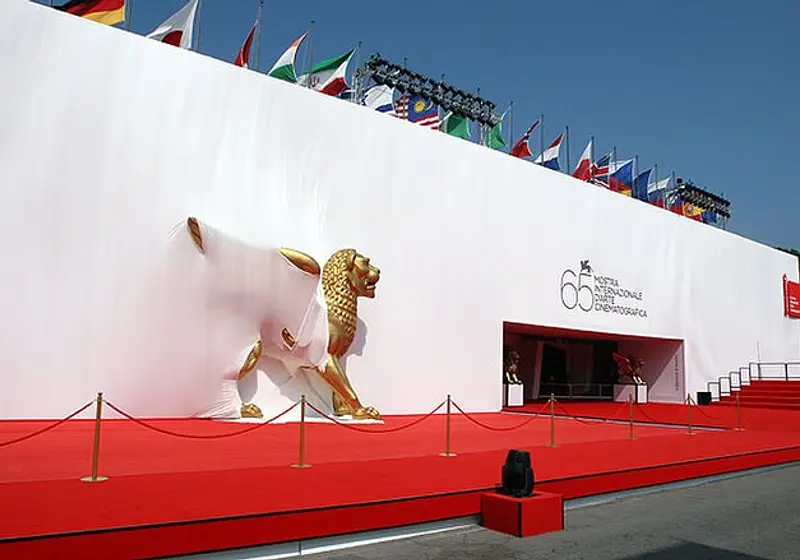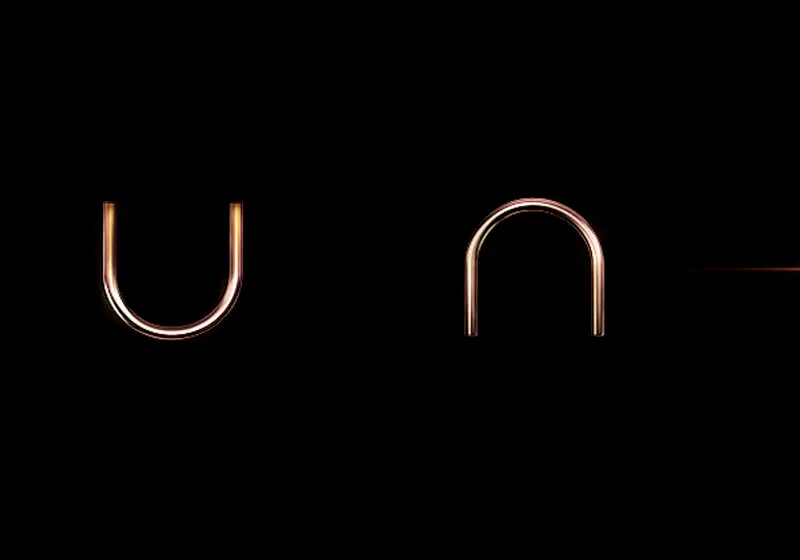For anyone in the know, it's not shocking that 2024 has been a bit underwhelming for movies so far. For starters, the 2023 writers' and actors' strikes caused delays in every major studio in Hollywood, so the slate is already weak. But beyond that, the movies that have premiered have disappointed both critically and commercially, with intensely marketed blockbuster films like Argylle losing 400 million dollars for Universal Studios, receiving a 35 on Metacritic, and getting a 33% on Rotten Tomatoes.
Other flops like Madame Web and Rebel Moon have met similar fates. However, there have been a few diamonds in the rough, signs of hope for any eager moviegoer. Although many releases spell a bleak future, Challengers, Dune: Part Two, and Furiosa: A Mad Max Saga make it hard to deny that the right movies are there… if you know where to look.
Let us slide into your dms 🥰
Get notified of top trending articles like this one every week! (we won't spam you)Challengers (d. Luca Guadagnino)
As soon as I walked out of the theater for Luca Guadagnino’s Challengers, I knew I had to write about a story that was among the most gorgeously energetic I had ever seen put to screen. It's one of those rare movies that's hard to explain to an adult but is instantly palatable to anyone between 15 and 30 (the movie is rated R, but the European rating of 15 seems more accurate to me). The movie is intensely generational - kinetic, jealous, and mischievous in a way only something this young and vibrant can be.
Guadagnino, known both for his prestigious success with Call Me By Your Name (a breakout for now-A-lister Timotheé Chalamet), and more oddball works like the cannibal romance Bones and All (which, incidentally, also stars Chalamet), seems to be pursuing something more commercial with Challengers. However, the film's artificiality is also what makes it so artistically unique. Each character's inability to break another's artifice gives the movie wit, charm, drama, and intensity.
Guadagnino is in hot pursuit of something romantically superficial with Challengers, seeming to want to put three attractive people in as many sweaty situations as possible, whether it be a sauna or a crazed tennis match. Tennis is at once an afterthought for Guadagnino, and all he can think about. This mirrors the characters themselves, who all seem very aware of the sport's metaphorical quality.
Tennis is a relationship, they tell us point blank multiple times. What the movie lacks in subtlety, it makes up for in assertiveness - if that ball is in your court, you better be able to hit it back. Ultimately, the relationship explored through the film's central tennis match - a Challengers tournament in New Rochelle, New York - is a love triangle between Mike Faist's Art Donaldson, Josh O'Connor Patrick Zweig, and Zendaya's Tashi Duncan.

Image credit: Wikimedia Commons
The romance is very competitive, with Art and Patrick almost instantly becoming 'challengers' for Tashi's affection. Tashi, however, is much more in love with the sport of tennis itself, and ultimately resents both men for any shortcomings they might have in the game. I'll leave the plot at that, but rest assured, the script from Justin Kuritzkes contains more than elaborate innuendo - it contains three masterfully written relationships that become increasingly entangled as they each continue to rally their respective serves across the net.
Kuritzkes' dialogue is a real highlight, accompanying Guadagnino's insinuatory direction with a genuine human motivation that drives all three characters to do what they do. Admittedly, Patrick feels far more fleshed out from a writing perspective than Tashi or Art. Still, there's also much to be said about Josh O'Connor's phenomenally charismatic performance.
Speaking of performances, there's no denying that the focal trio is a big part of the appeal of Challengers. O'Connor is undeniably the most flashy of the three. As he points out, he's a terrible person.
He knows it, and his self-awareness makes his obnoxious behavior endearing as well, his self-assured grin casting a spell on everyone around him even as he grows more and more internally desperate. Faist's performance is far more relatable but no less bombastic, coming from a place of both anxious attachment and genuine care for two people who care much more about themselves. West Side Story remains his best role, but Challengers shows his range. As for Zendaya, though Tashi feels thinly written and needlessly cruel to me, she is executed perfectly from an acting perspective, emanating the magnetism that her role requires.
Perhaps what makes Challengers more than a soapy sports romance, however, is the insane technical work that Guadagnino and his crew were able to pull off here. Kudos must be given to cinematographer Sayombhu Mukdeeprom, who executed one of the most insane effects-driven shots I have ever seen in a sports film in its climax and generally provided the film with its captivating and thrilling visual energy. However, the real MVPs are Trent Reznor and Atticus Ross, the film's composers.
Simply speaking, Reznor and Ross, best known for The Social Network, define Challengers with their exciting techno score. The fast-paced electronic music is pitch-perfect in its modernity, providing such an elaborate reflection of directorial intent that it becomes impossible to deny the film or its music. Though Challengers may be silly or thin in some ways, its cast and crew are firing on all cylinders, making it an invigorating experience all the way through.

Take the Quiz: Which Bruno Mars Jam Matches Your Vibe?
Find out which Bruno Mars hit perfectly captures your unique style and energy!
Dune: Part Two (d. Denis Villeneuve)
If you thought Challengers was the only stylistically ambitious film starring multiple generational talents to release this year, think again, because you forgot about the biggest movie of the year so far - Dune: Part Two. If you're reading this, I don't have to tell you that Dune: Part Two is one of the grandest cinematic products to come out of Hollywood since the conclusion of the Lord of the Rings trilogy, the second installment in an incredibly ambitious science fiction adaptation that released to universal acclaim and success. Though I'm of the fringe belief that Dune: Part One, which was released in 2021, has a more compelling screenplay than its successor, Dune: Part Two is a deliberate step up, compared by critics to The Empire Strikes Back as an attempt to convey just how successful of a sequel this film is. (Incidentally, contrary to popular belief, Empire Strikes Back is just a tad worse than the original Star Wars, but that's neither here nor there.)

Image credit: Wikimedia Commons
Now, if you thought Challengers was flush with members of Hollywood's new A-list, you would be right, but the film pales in comparison to the almost inanely congested - I say this, of course, in a good way - ensemble of Dune. The movie stars Timotheé Chalamet (and believe me, this franchise is bigger for him than Guadagnino's cannibal film), Zendaya, Rebecca Ferguson, Josh Brolin, Austin Butler, Florence Pugh, Dave Bautista, Christopher Walken, Léa Seydoux, Stellan Skarsgard, and Javier Bardem - and if you haven't heard of the majority of those names, you've officially failed Hollywood 101.
Walken, Pugh, and Seydoux play extensions of the new imperial faction that we've heard from in the first film, but not seen assert themselves until this second part. They are not a highlight of the movie in any way, but some of the costumes Pugh wears certainly are.
More exciting are the Harkonnen, our disgusting and irredeemable villains who played a massive part in why the first Dune movie was such an intense war film. This installment is no different, with Stellan Skarsgard's disgusting despotism as the Baron and Bautista's blind rage as his general continuing to characterize the Harkonnen psychopathy. The standout villain, though, is Austin Butler, who acts as Feyd-Rautha, an elegant sociopath and masochist who craves pain and blood.
Butler, who almost won an Oscar for playing Elvis Presley last year, is an entirely different animal here, characterizing himself with a strange lisp and a tendency to lick his lips, killing not only without mercy but with great satisfaction. Several key scenes in the film portray his ascendance to being the chief opponent to the Atreides as uniquely cinematic, and Butler does an excellent job of servicing that directorial choice.
Rebecca Ferguson and Josh Brolin return from the first film as members of the Atreides faction but immediately assert themselves as far more morally gray than simply the "good guys" fighting the objectively evil Harkonnens. Both attempt to use their influence on Paul (Chalamet) in order to service their agenda and champion his rise to power, but it becomes increasingly questionable what exactly this power will be used for.
Ferguson's performance in the original Dune as Lady Jessica, a member of the Bene Gesserit (a powerful galactic sisterhood), is among the best science fiction performances ever. Her ambition for her son is incredibly subtle, emotional, and nuanced, and her presence in Part Two is no different, albeit slightly overshadowed by other high achievers.

Image credit: Wikimedia Commons
The Fremen, introduced as skilled nomads in Part One that would give the Atreides great power if they could successfully wield them against the Harkonnen become the main heroes of Part Two as Paul joins their ranks and begins to convince them he is worthy to fight alongside them. However, Paul's status as a religious messiah introduces fascinating commentary, as some Fremen, like Javier Bardem's Stilgar, are convinced he is a prophetic figure destined to lead the Fremen to greatness, while others, like Zendaya's Chani, dismiss religion as a method of manipulation by the Bene Gesserit.
Zendaya does just as good of work as in Challengers, balancing her love for Paul with her anger towards what he comes to represent, a balance she handles with grace.
Bardem's performance is a true standout. Bardem's visible faith in Paul and his elated grin when Paul begins to lead the Fremen in ways that disturb others are traits of Bardem's acting which elevate Stilgar to one of the most thematically resonant characters in science fiction. Because of Bardem's visible catharsis, the audience can sense the shifting of Paul's power and coming of age throughout the film, for better or worse.
The undeniable best performance in the film, however, is Chalamet as Paul, whose journey from conflict to self-assuredness is one of the most compelling yet tragic coming-of-age voyages of all time. Chalamet's bravado masks a hurt boy forced to do what the universe asks, but nobody would dare call him a boy by the time Paul is through, marking a step up from the already masterful performance he gives in Part One.
It's easy to talk about the cast of Dune: Part Two all day, but the film also continues to deliver on the technical mastery that made the original movie so unique in scope and ambition. From the second the film begins, everything from the cinematography to Hans Zimmer's incredible score to the sound design reminds the viewer that Villeneuve is determined to achieve cinematic perfection.
The world of Dune is more immersive than can be put into words, as I expected from the excellent atmosphere created by the first installment, but still more impressive is just how creative Villeneuve is in using the grandiose production in service of an increasingly complicated story. Even if you are somehow not emotionally hooked by the film's characters or plot, Denis will pull you in using nothing but the sheer power of sound and image.
The nuance in Dune: Part Two's quality as a film and story, which is undeniably superb, comes in its position as a sequel to Dune: Part One. Some notable differences exist in the screenplay's lack of focus on politics and the emotional attachment to dynasty that existed in the first film. Such depth has been attributed to screenwriter Eric Roth, writer of Forrest Gump and Killers of the Flower Moon, who co-wrote Part One but did not return for Part Two.
His absence is felt. The original Dune sees Paul grappling with his father's legacy and the implications of war as he leaves his home planet of Caladan. Some of that emotional weight is lost in key moments of Paul's demise in Part Two, as Roth's careful pacing and thought-provoking dialogue are not featured. Nevertheless, Part Two does so many other things right that it's hard to stay disappointed for long.
Furiosa: A Mad Max Saga (d. George Miller)
The third film worth discussing from 2024's somewhat limited catalog is another follow-up to a grand science fiction adventure film, perhaps a bit more obscure for the average moviegoer but no less intensely cinematic. The appropriate disclaimer in comparing the Mad Max saga to the world of Dune is that they are entirely antithetical in how their makers are interested in telling their stories. George Miller, the mastermind behind Mad Max, a film that follows the surviving humans in a futuristic apocalyptic wasteland (the films are set in Australia, so there's ripe material for making fun of Aussies), is intent on minimizing dialogue and maximizing jet-fueled awesomeness.
In a world that has lost its reason, barbary takes priority on the screen over any kind of rational thought. I'll be up front with it: Dune is more my speed, a diligent appraisal of galactic politics and elegant warfare.

Image credit: Wikimedia Commons
That's not to discredit the world of Mad Max, however. What George Miller has done with the franchise is breathtaking, constructing this constantly infuriated mass of movement, dirt, and blood that has no time for the qualms of civilization. In 2015, he released Mad Max: Fury Road, a reboot of his 1980s action trilogy that earned truly shocking and unprecedented acclaim.
The film quickly earned acclaim as one of the best action films ever made, with nearly unanimous agreement among critics that the film was definitively the best straightforward action film ever put to screen, with only Aliens and Seven Samurai putting up a fight. And when critics compare your high-octane thriller to Kurosawa, you know you've done something very right. The film was nominated for ten Oscars and won six.
There's no denying that Mad Max: Fury Road is one of the most fascinating movies I've ever seen. The movie's philosophy can best be summed up by a shot of the enemy warlord's pursuers chasing Max and the Imperator Furiosa (the film's protagonists). In front of the enemy's vehicles, these hulking masses of metal and gasoline hurtling across a desolate wasteland in sweltering pursuit is a deformed man in a red shawl playing the electric guitar, which has flames shooting out of it.
This image, accompanied by an incredible heavy metal score by Junkie XL, sums up what Miller aims to accomplish with Fury Road. The enemy does not just need to catch Max and Furiosa. They take immense joy in the chase, and so does the audience - which only makes the stakes all the more terrifying.
Furiosa: A Mad Max Saga is a long-awaited prequel to Fury Road, which tells the story of what happened to Furiosa, the driver of a "war rig" - a massive and destructive vehicle that carries precious resources that belong to Immortan Joe, a powerful warlord - before she sets out to escape Joe in Fury Road. Furiosa is much more focused on story than Fury Road, taking place over decades instead of days. It dives deep into the character of Furiosa, played by Anya Taylor-Joy.
However, Miller maintains his devotion to exploring the binary of vicious savagery and empathetic victimhood. Furiosa, hardened by a life of exploitation, is that rare anti-hero driven by love and capable of enormous hatred.
Hatred for what exactly is a surprisingly easy question to answer. One of the things Furiosa does so well is establish a foil for our vengeful hero, a boisterous warlord named Dementus, on whom Furiosa spends the film trying to take vengeance. Dementus, played excellently by Chris Hemsworth, occupies a unique space in the world of Mad Max, somebody intelligent enough to utilize others to pursue his goals, which are motivated by a recognition of hopelessness.
Hemsworth's performance, which is fragile and egotistical in all the right ways, is enormously compelling. Not only does his terrifying grin define some of the film's most memorable shots, but his understanding of Furiosa and her hatred for him makes him unusually considerate in such a blindly destructive world.

Image credit: Wikimedia Commons
Furiosa and Dementus share in common the intent behind their destruction; he is motivated by full comprehension of hope and hate in a pitiful world, and he is driven by that very hope and that very hate. Hemsworth does the lion's share of the talking, and does it very well, but Anya Taylor-Joy and Alyla Browne (who plays the child Furiosa) bring the emotional heft that the film sets out to capture.
Both actresses have an incredible sense of nonverbal acting, with Browne conveying all the necessary anguish in the film's first act that translates seamlessly into Taylor-Joy's angry resilience. Along with a fairly unremarkable - though obviously talented - Tom Burke, they form an ensemble that more than handles Miller's emotional ambition.
Speaking of ambition, that word is probably the best way to describe what makes Furiosa work so well and what makes it such a worthwhile inclusion in the ranks of 2024's best. The film adds so much to the world of Fury Road, adding crucial depth to its central characters and a sense of timeless despair to its exhausting action. The ambition behind the duology's production - a whirlwind of grimy sound and primordial costumes, elaborate sets, and quirky effects - is characteristic of both Dune and Challengers.
The trio all know with enormous specificity the feeling that each member wants to evoke and is willing to stop at nothing to achieve it with the utmost precision. That singular initiative from the auteurs of 2024 - Guadagnino, Villeneuve, and Miller - promises so much more to come.












